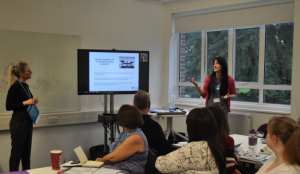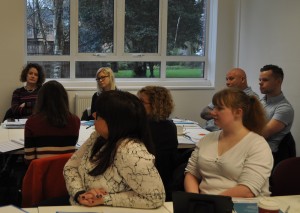

The West Midlands ADVANCE team were excited last week to bring together key organisations and academics from the field of IPV and substance misuse to discuss the ADVANCE project. The Learning Alliance will work together to strengthen and support the exchange of information, whilst enhancing the possibilities of mainstreaming the integration of domestic abuse interventions with substance use services.
Members of the West Midlands Learning Alliance included the following organisations: Swanswell, Public Health England, West Midlands Violence Prevention Alliance, West Midlands Police, Richmond Fellowship, West Mercia Rape & Sexual Abuse Support Centre, Police and Crime Commissioner, West Mercia, Anawim, West Mercia Women’s Aid, South Staffordshire and Shropshire Healthcare NHS Foundation Trust, Aquarius, Worcester County Council, Safe & Sound Malvern Hills and Cranston.
The Worcester Research Team introduced the ADVANCE project in-depth, and explained the projects goals and workstreams. Representatives discussed their thoughts on the research plans and highlighted best practice surrounding safety when recruiting survivors of IPV into research. Representatives discussed language used to recruit survivors and safety protocols that should be implemented for both the participants and researchers taking part.
Overall, feedback from the first meeting was very positive with representatives expressing how nice it was to be able to share experiences of the challenging nature when working with substance users + IPV perpetrators with similar organisations.
The next meeting will be in June. If you would like more information on the Learning Alliance or would like to attend the next Learning Alliance meeting then please contact Amy Johnson on a.johnson@worc.ac.uk.



